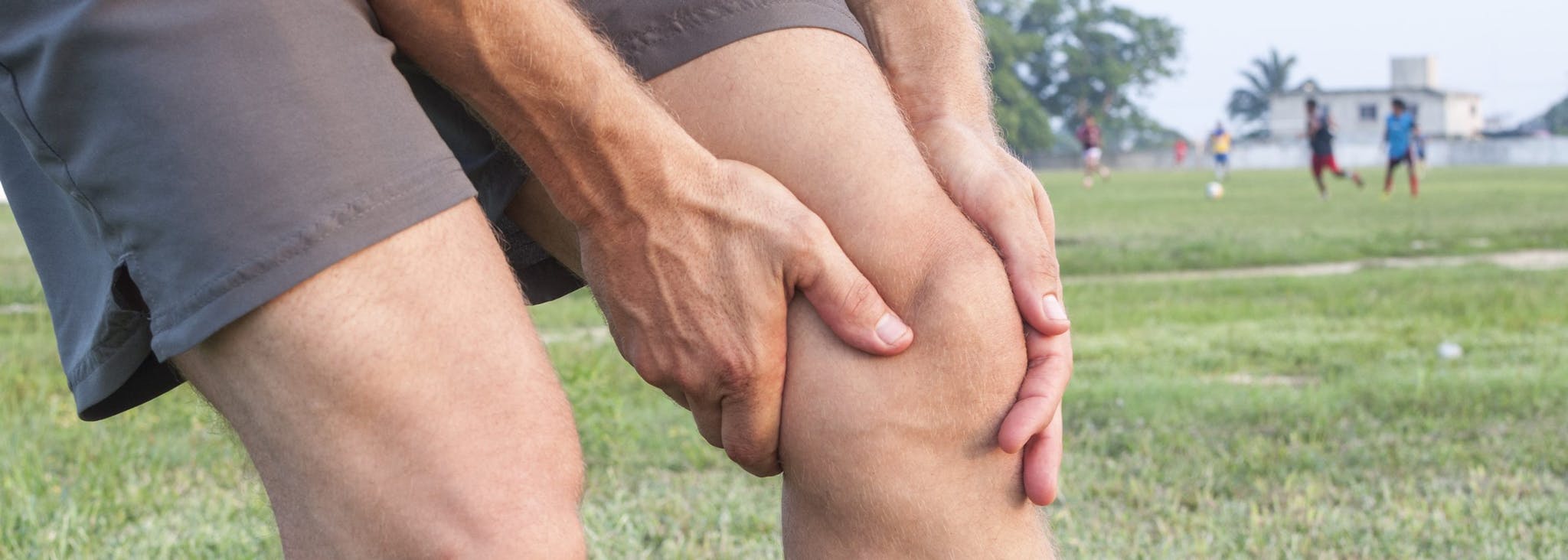
April 22, 2024
What Deficiency Causes Cold Hands and Feet?
- Family Medicine
- Internal Medicine
June 6, 2016 | Wellness Institute

Facing surgery can be an overwhelming prospect, but in order to improve movement or pain, surgery can do wonders for the quality of life. Surgeons do their best to ensure surgeries are successful and physical therapists prescribe exercises to get you moving after surgery, but the rest is up to you. Let’s look at three common orthopedic surgeries we see at Revere Health and a few tips to make sure your rehabilitation—or the rehabilitation of someone you will be taking care of—is a success.
If you or a loved one have been diagnosed with insomnia, depression or anxiety, it’s important to report that prior to surgery. Changes in a patient’s state of mind are not uncommon. Factors that can make someone experience emotional changes are:
If you or a loved one experience any significant changes in anxiety, depression or insomnia, notify your doctor.
Insomnia: Many people experience sleep disruptions after surgery. Insomnia can be treated with medication and home remedies. Ask your doctor about taking over-the-counter sleep aids like Melatonin or Benadryl. Home remedies include:
Avoiding caffeine, big meals and nicotine before bedtime
Doing something to unwind before bedtime, such as reading, writing or listening to relaxing music
Not using electronics before bed, dimming the lights and keeping the room dark
Using calming scents to promote sleep, such as lavender
Depression: limited mobility and dependence on others can create feelings of intense sadness and hopelessness. It can impact mood, behavior, interests, energy levels, sleep and appetite. If you or a loved one experience depression, be sure to:
Take prescribed medications as directed
Get plenty of rest
Do your physical therapy exercises; they help you recover properly
Reach out to your friends or family, or even a therapist or counselor if you need to talk to someone
Call 911 immediately if you have thoughts of harming yourself or others
Anxiety: apprehension of pain, immobility and recovery can cause feelings of fear, worry and panic. If you or a loved one experiences crippling anxiety that may inhibit proper recovery, contact your doctor.
Practicing relaxation techniques, such as music therapy or deep breathing exercises, can help ease anxiety
Try to find the positive and be committed
Challenges and pain are inevitable on the road to recovery, and your attitude can make or break the success of the surgery. Seek help from family and friends to help you keep a positive attitude and don’t give up!
Bend and straighten your leg as much as you can. One way to work on your extension is by lying down with a rolled towel underneath your ankle, then try to keep your leg as straight as you can. You can work on your flexion by sitting in a chair and curling your leg underneath your bottom.
Don’t lift heavy objects that put too much weight on your artificial knee; it could lead to damage.
When turning in a different direction, ensure you turn your entire body to avoid twisting your knee.
Watch your form when you kneel, bend down and sit.
If your doctor says you need to wear compression socks after surgery, keep them on while lying down or sleeping. They can help reduce the chance of developing blood clots. Be sure to wear them until your doctor gives the okay to stop.
Avoid putting on extra pounds. Increased weight puts more pressure on your healing knee, which can tire you out more easily and slow the recovery process. You may also be put at risk for developing osteoarthritis, a.k.a. wear-and-tear arthritis, were the cartilage between joints wears away leading to pain, soreness, swellings and the ability to move easily.
Moving around the house doesn’t provide adequate exercise, so as soon as your doctor gives the okay, consider doing low impact activities and avoid high-impact activities. Don’t risk damaging your progress; modify exercises or find alternatives. Keep your muscles active and increase blood flow for better healing. Here’s a list of some activities you can do after a total knee replacement:
> Swimming: Swimming can be done 3-6 weeks post op; check with your therapist first to see if your body is fit for swimming.
> Cycling: When cycling, stay on a flat surface, alternate pedaling backwards and gradually ease into longer distances.
> Elliptical: This is a good alternative to running since it takes stress off of the knees.
> Yoga: Yoga helps alleviate stiffness and boosts the overall health of the knee. Be sure to keep knees aligned with hips and ankles.
> Weight Training: This helps strengthen the knee, lessens pain and increases bone density. Start out with lighter weights and don’t overexert yourself.
> Rowing: Rowing is a good upper body and cardio workout with minimal stress on the knees. Adjust the seat so your knees are bent 90 degrees or more.
The National Institute of Arthritis and Musculoskeletal and Skin Diseases reports that nearly 90 percent of people who have total knee replacement surgery have less knee pain and improvement in the overall quality of life. Exercising helps keep your weight down, which in turn helps reduce wear and tear on your new knee.
However, jumping back into activities before sufficient recovery puts you at risk for injury and further complications. Take things one day at a time, and slowly build your way up. Be sure to ask your doctor before engaging in any activities after surgery. Remember; stop immediately if you feel any discomfort or pain.
It is important to let the tendon heal without any aggravation. Do not ignore restrictions set by your doctor. Wear a sling, and avoid using your arm for 4-6 weeks post-operation. Avoid any overhead activities—even if it feels ok.
Finding a comfortable sleeping position can be tricky. While lying down, support the elbow from behind with 1-2 pillows so it doesn’t fall back; do not sleep on your side or stomach. Also, try sleeping in a semi-reclined position or in a recliner chair.
At 4-6 weeks post-op, you will start working with a physical therapist. Focus on your range of motion to minimize stiffness and increase the likelihood of a successful result.
Keep open communication with your therapist so they are aware of your needs, concerns, lifestyle activities, pain and progress.
At 8-12 weeks post-op, you will start doing strength training exercises. Be patient; complete recovery can take several months. Though the process is slow, your commitment to rehabilitation is key!
Do not bend your hip beyond 90° (a right angle), and do not bring your legs or knees together. Use a pillow between your legs in bed to help maintain the proper position and to keep your legs apart.
Do not sit straight up in bed or bring your operative leg up toward your chest.
Do not rotate your operative leg inward or bend over to reach objects from the floor.
Practice exercises given by your doctor, and walk as tolerated to maintain circulation. Pump your feet up and down 20 times each hour while awake.
It’s important to determine what kind of help you will need after your surgery, such as errands, cleaning, transportation and personal care. Find a family member or friend who can help you for the first week you are home.
Do not drive for at least 6 weeks after surgery. When getting in or out of a car, keep your leg straight and out to the side.
Do not lean forward when getting in or out of a chair. Keep your legs and knees apart, and avoid excessive flexion at the hip joint. Ideally, you should use chairs with arms for assistance. Place a pillow or two in the seat to keep your hip from flexing.
Use an elevated toilet seat for at least 6 weeks after surgery.
Avoid using ointments, creams or lotions on the hip area and do not bathe for 6 weeks; use a shower or sponge bath. Keep the area dry until your sutures are removed, and avoid showers for 48 hours after they have been removed.
If you are facing a possible surgery, be sure to talk to you doctor about things you can do before surgery that may better improve the outcome of your rehabilitation. Revere Health has a great team of skilled surgeons and physical therapists who want you to have the best care possible so you can get moving again.
http://www.healthline.com/health-slideshow/total-knee-replacement-surgery-success#1
http://www.healthline.com/health/total-knee-replacement-surgery/sports-activities-after#4
http://vivaphysiotherapy.com/tips-for-rehab-after-knee-surgery/
http://www.orthop.washington.edu/?q=patient-care/articles/sports/arthroscopic-shoulder-surgery-for-the-treatment-of-rotator-cuff-tears
http://orthoinfo.aaos.org/topic.cfm?topic=a00406
http://www.jeffreybergmd.com/physical-therapy-after-your-rotator-cuff-surgery/
http://www.emoryhealthcare.org/emory-orthopaedics-spine-hospital/post-op-care/post-hip-surgery.html
https://www.ucsfhealth.org/education/recovering_from_hip_replacement_surgery/
WRITTEN BY:
The Live Better Team


April 22, 2024

April 9, 2024

March 22, 2024

February 12, 2024
This information is not intended to replace the advice of a medical professional. You should always consult your doctor before making decisions about your health.